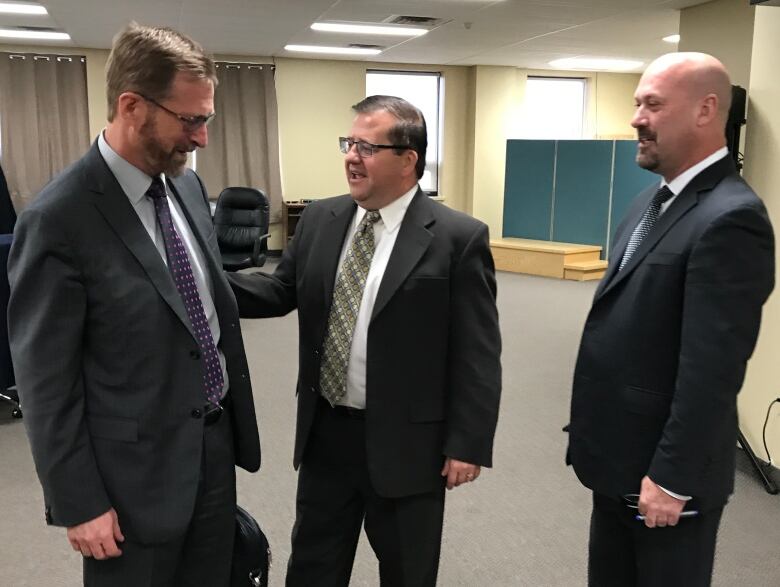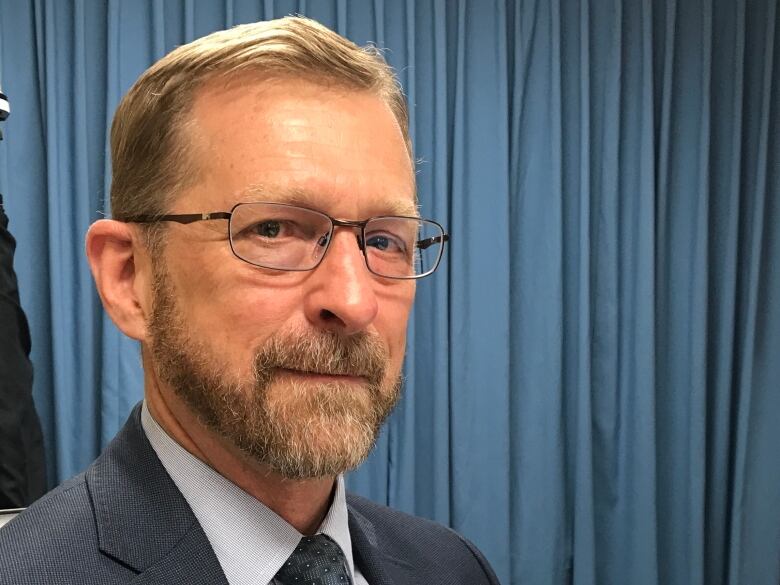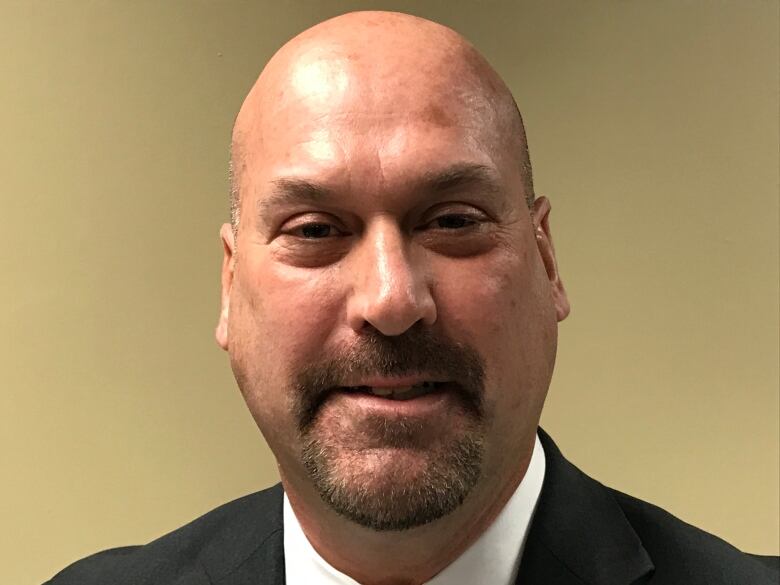Lawyer tells Muskrat inquiry 'something sinister' about pared down gas report
Conflicting testimony about who directed removal of liquid natural gas information from report

A lawyer at the Muskrat Falls inquiry says a report that looked favourably upon importing liquid natural gas (LNG) as an option for Newfoundland's future electricity needs was suppressed,and there might be "sinister" reasons behind the decision.
Barry Learmonth is co-counsel at the inquiry, and he's not afraid to inject his own theories about how the planning for Muskrat Falls unfolded.
This week he wastryingto find out why a 2012 report by Wood Mackenzie was substantially altered before it was released to the public, and who made the decision.
His questions resulted in plenty of finger-pointing, some uncomfortable testimony for a senior government bureaucrat, and several "I don't know" replies from a former high-profile politician, Jerome Kennedy,who helped lead the charge to sanction Muskrat Falls six years ago.
This ledLearmonthto offerhis own explanation.
"I suggest to you the reason is it gave a much more favourable consideration to LNG and the government was determined to eliminate all options other than Muskrat Falls, and therefore this had to go."
Bruneaustirs the pot
The issue involves some intense debate in 2012 about whether natural gas was a viable option, using either a pipeline to the Jeanne d'ArcBasin to tap into the supply of gas being produced by oil platforms in the offshore, or importing liquid natural gasfrom external sources.
Government-owned Nalcorhad earlier screened out the gas option, and only comparedMuskrat Falls and the isolated island power grid to determine whichwas the least-cost option.

An analysis by Nalcor determined Muskrat was the preferred choice, and the project was sanctioned at a cost of $6.2 billion in late 2012.
But an engineering professor at Memorial University,StephenBruneau, raised doubts earlier that year after giving an attention-grabbing presentation thattouted the potential of offshore gas.

In response, government hired a company called Ziff Energy to review those options, and its findings determined neither domestic gas nor LNG were feasible.
But the issue didn't end there. Government then hired another firm, Wood Mackenzie, to review and comment on the Ziff report.
Wood Mackenzie came back with some dramatically lower cost estimates for the LNGoption, potentially making it a cheaper alternative to maintaining the isolated island grid.
'Manipulating the message'
But all references to LNGwere removed from the Wood Mackenzie report before it was released publicly, and Learmonthseized on this, accusing government of "cherrypicking" and "manipulating the message" at a time when debate was raging about Muskrat Falls.
Learmonthwent so far as to say the reviews were not an honest assessment, but a processdesigned to eliminate natural gas.
"The conduct in suppressing that report is not consistent with an open, objective assessment," Learmonthstated.
'No explanation'
So who made the call to pare down the report?
Was it Jerome Kennedy, the outspoken former politician who served as minister of Natural Resources when Muskrat Falls was sanctioned?

Kennedy said"I was trying to get everything out there."
But Kennedy offered his own theory. Perhaps it was Jim Keating, the vice-president of oil and gas with Nalcor.
Evidence showsKeatingtook quite an interest in the review, including an October 2012 email to a government official in which he wrote: "WM (Wood Mackenzie) should say they were to commentonly on the pipeline piece."
Whether or not that had undue influence, sir, or had influence in terms of the decision being made, I don't know.- Jerome Kennedy
"Whether or not that had undue influence, sir, or had influence in terms of the decision being made, I don't know," Kennedy said of Keating's email.
But in a series of messages with CBCNews on Wednesday,Keating denied any involvement.
"I did not direct any removal," he said.
Keatingsaid he was asked to review the report for "accuracy and completeness," and then added: "I understood I was to receive a report about (Wood Mackenzie's) review of the pipeline option; not LNG.
"I understood that government had asked only for a pipeline review, therefore I was surprised to see the LNG comments, but it mattered not to me."
'Minister Kennedy was all over these papers'
The clearest answer came from Charles Bown, the deputy minister of Natural Resources at the time Muskrat Falls was sanctioned.
Bown was a key liaison between government and Nalcorduring the planning and sanctioning phase, and his name has come up numerous times during the inquiry.
He took the witness stand on Wednesday, and was also pressed for answers by Learmonthon the Wood Mackenzie report.

After some reluctance, Bown offered this:
"I would say, with the best of my recollection, that that direction would have come from Minister Kennedy," Bownsaid of his former boss.
But Bown quickly left open the option that someone else might haveinfluenced Kennedy, saying, "Whether he had conversations with other people over the weekend, when I had provided that copy of the work to him, that I can't verify."
When asked why the information was removed, Bown said the explanation was that public debate was around the issue of a pipeline to the offshore, and the focus should remain on that issue.
Bownsaid he had no issue with the original report, since"I didn'tthink the points that they raised were so bad as to change the decision on whether Muskrat Falls was the least cost choice."
Kennedy, meanwhile, concluded his testimony and left the province on a previously scheduled flight Wednesday.
He could not be reached for comment.












_(720p).jpg)


 OFFICIAL HD MUSIC VIDEO.jpg)
.jpg)



























































































